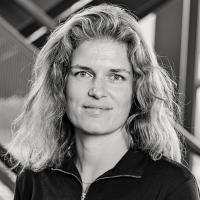Livestreaming
Nordic immigration policies in flux: Domino effects and shifting paradigms

Follow the livestreaming here
Nordic countries have experienced a slow U-turn in their national asylum and immigration policies. Traditionally seen as liberal front-runners regarding refugee protection and free movement, the last two decades have seen a wide range of more restrictive policies. In some cases, Nordic countries have even pioneered internationally unique measures in relation to new temporary protection and family reunification schemes, border closures, and new third-country partnerships. Consequently, Nordic countries find themselves in the international spotlight both politically and in relation to international human rights and refugee law discussions.
This seminar explores the underlying drivers behind these policy changes, their impact, and interlinkages across Nordic countries and beyond. We ask leading Nordic scholars and legal experts: How have domestic interests and international trends impacted policy changes in each of the Nordic countries? When have Nordic immigration policies evolved co-extensively or out of sync, and how does this impact Nordic cooperation? To what extent have the ‘New Nordic’ immigration policies impacted similar reforms at European and international levels? What are the future outlooks for immigration policy and Nordic collaboration in light of EU’s new migration and asylum pact, current migration trends and increasing labor shortages across Europe?
Jens Vedsted-Hansen is a Professor at Aarhus University, Department of Law. He is a leading Danish and international scholar of international refugee law and European asylum and immigration law, member of the Odysseus Network and coauthor of the Danish main aliens law textbook, Udlændingeret.
Jan-Paul Brekke is the Research Director for Equality, inclusion, and migration at the Institute for Social Research in Norway. One of his main research interests is how asylum policies are developed and their impact on the individuals who arrive.
Saila Heinikoski is a Senior Research Fellow in The European Union and Strategic Competition research programme at the Finnish Institute of International affairs. Her research focuses on EU border management, free movement, EU external relations and European integration.
Martin Nyman is Senior Legal Advisor, at the Civil Rights Defenders in Sweden, where he leads their migration programme. He has previously held several positions within the field of migration law, including as Chief Legal Officer at Asylrättscentrum – The Swedish Refugee Law Centre, as Associate Legal Officer at UNHCR’s Representation for the Nordic and Baltic Countries, as a reporting lawyer at the Migration Court in Stockholm and the Migration Court of Appeal, and as a Case Officer at the Swedish Migration Agency.
Thomas Gammeltoft Hansen is a Professor at the Faculty of Law, University of Copenhagen. He is the Director of MOBILE - the Danish National Research Foundation's Center of Excellence on Global Mobility Law, and leads Nordic Asylum Law & Data Lab. His research and many publications focus on Nordic and international mobility law, refugee and migration law, data-driven legal methods, and international legal theory.
Ida Marie Savio Vammen is a Senior Researcher at the Migration and Global Order Unit at the Danish Institute for International Studies. Her field based base research centers on the multiple effects of EU border governance and externalization in West Africa, as well as migrants' everyday navigation and precarity.
Programme
13.30-13.40 Introduction: The slow U-turn in Nordic immigration policies, Ida Marie Savio Vammen & Thomas Gammeltoft-Hansen
13.40-14.40 Roundtable discussion: National and cross-cutting perspectives on Nordic immigration policy
14.40-15.15 Q&A
Practical information
The seminar will be held in English. Participation is free of charge but registration is required via our registration form.
Livestreaming on this page does not require registration. The livestreaming will appear with a link on the page just before the seminar starts. You will be able to watch the seminar recording afterwards as well.
The seminar is organised by DIIS in collaboration with the Nordic Institute for Migration and the Center of Excellence for Global Mobility Law at the University of Copenhagen.

Sign up
DIIS Experts

